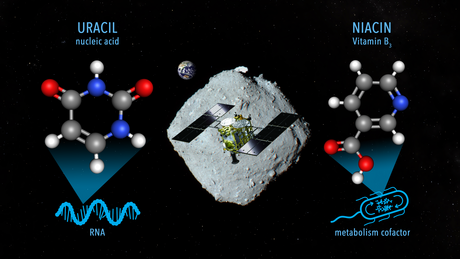Asteroids roam the Solar System like full-blown treasure troves that contain the molecules of life, and, above all, protect them from threats that could degrade them, such as cosmic rays, according to an international study which found fundamental building blocks of life, like molecules of the key nucleobase uracil and vitamin B3, in the dust of the asteroid Ryugu captured in 2018 by the Japanese probe Hayabusa 2.
Published in the journal Nature Communications, the study was coordinated by a group from the university of Hokkaido led by Yasuhiro Oba. "It isnt the first time that organic molecules or other molecules that are fundamental for life, such as amino-acids and DNA or RNA bases, have been found on asteroids, but in this case it has also been shown that these molecules can be preserved, protected from interaction with radiation and solar wind, for millions and millions of years", said Ernesto Palomba, of the Rome-based Astrophysics and Space Planetology Institute (IAPS) of the National Astrophysics Institute (INAF).
Proof that asteroids are real troves of life can be found in samples taken from the Hayabusa 2 probe, which in 2018 reached and took two types of samples from asteroid 162173 Ryugu: one taken from the surface and one from materials located farther down, protected by a few centimeters of detritus. All the samples were encapsulated and sent to Earth











Caricamento commenti
Commenta la notizia